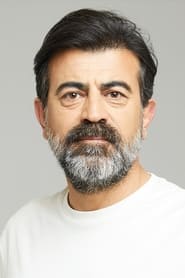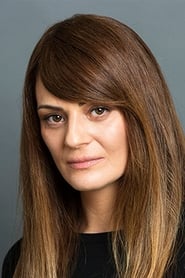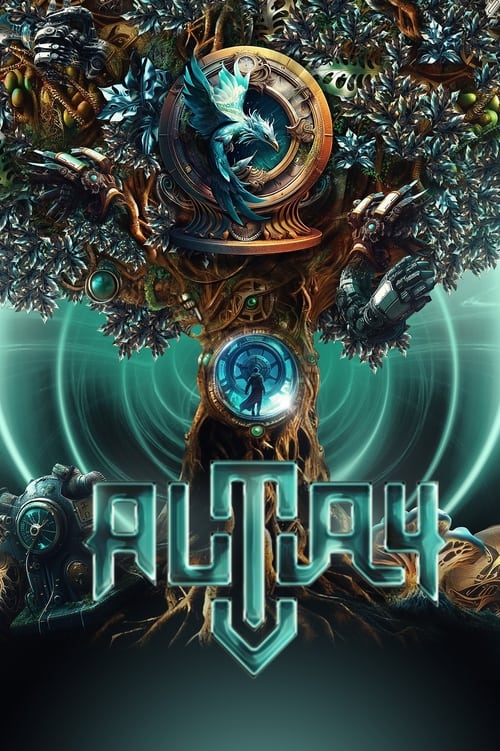
Ask Your Own Question
What is the plot?
The story begins with the introduction of the protagonist, a young and idealistic man named Fatih, who is a skilled martial artist and has a strong sense of justice. He lives in Istanbul and works as a mechanic, but he dreams of becoming a hero like the legendary Akıncı, a vigilante who fights against crime and corruption. Fatih's life takes a turn when he discovers a hidden family legacy connected to the Akıncı persona.
Fatih's journey begins when he stumbles upon an old suit and mask belonging to his grandfather, who was the original Akıncı. This discovery ignites a fire within him, and he decides to take on the mantle of Akıncı to protect his city from the rising tide of crime. He begins training rigorously, honing his combat skills and learning about the responsibilities that come with being a vigilante.
As Fatih embraces his new identity, he faces his first major challenge when a notorious crime syndicate led by a ruthless figure named Korkut begins to terrorize the neighborhood. Korkut's gang is involved in drug trafficking and extortion, and they have a stronghold in the area. Fatih, donning the Akıncı suit for the first time, confronts Korkut's men in a tense alleyway fight. The scene is filled with adrenaline as Fatih uses his agility and martial arts skills to take down several gang members, showcasing his determination and bravery.
After the confrontation, Fatih's actions draw the attention of the police, particularly a dedicated officer named Zeynep, who is investigating the crime syndicate. Zeynep is conflicted; she admires Akıncı's efforts but is also determined to uphold the law. Their paths cross when Zeynep witnesses Fatih in action, and she begins to suspect that he may be more than just a vigilante.
As Fatih continues his fight against Korkut's gang, he faces personal challenges as well. His relationship with his family becomes strained, especially with his father, who disapproves of Fatih's dangerous pursuits. Fatih's internal struggle is palpable as he grapples with the weight of his family's expectations and his desire to make a difference in the world.
The plot thickens when Korkut retaliates against Fatih, targeting his loved ones. In a dramatic sequence, Korkut's men kidnap Fatih's younger sister, using her as leverage to force him to back down. This moment is a turning point for Fatih, as he realizes the true stakes of his actions. He musters all his courage and devises a plan to rescue her, showcasing his resourcefulness and determination.
In a high-stakes rescue operation, Fatih infiltrates Korkut's hideout. The scene is tense and action-packed, with Fatih stealthily taking down guards and navigating through the lair. He finally confronts Korkut in a climactic showdown. The fight is intense, with both men exchanging blows, showcasing their physical prowess. Fatih's emotional state is a mix of fear and resolve as he fights not just for his sister but for his ideals.
After a fierce battle, Fatih manages to defeat Korkut, rescuing his sister and bringing her to safety. This victory solidifies his role as Akıncı in the eyes of the community, who begin to rally behind him as a symbol of hope. However, the victory is bittersweet as Fatih realizes the ongoing threat of crime in the city.
As the series progresses, Fatih faces new adversaries and challenges, including a rival vigilante who questions his methods and a corrupt politician who seeks to exploit the chaos for personal gain. Each encounter forces Fatih to confront his beliefs about justice and the consequences of his actions.
The climax of the series builds towards a final confrontation with a powerful crime lord who has been orchestrating the chaos in Istanbul. Fatih, alongside Zeynep and his allies, devises a plan to take down this new threat. The final battle is a culmination of all the skills Fatih has developed, and it takes place in a dramatic setting, filled with high stakes and emotional weight.
In the end, Fatih emerges victorious, but not without losses. The experience transforms him, and he comes to understand the complexities of heroism. The series concludes with Fatih standing on a rooftop, looking out over the city he has fought to protect, embodying the spirit of Akıncı as he prepares for whatever challenges lie ahead.
More TV Shows Like This
Browse All TV Shows →What is the ending?
In the ending of "Akıncı," the protagonist, Fatih, confronts the main antagonist, who has been orchestrating chaos in Istanbul. After a series of intense battles and emotional confrontations, Fatih ultimately defeats the antagonist, but not without significant personal sacrifice. The series concludes with Fatih embracing his role as a protector of the city, while his relationships with his loved ones are tested but ultimately strengthened.
As the final episode unfolds, the tension in Istanbul reaches a boiling point. The city is on the brink of chaos, with the antagonist's plans threatening to plunge it into darkness. Fatih, the Akıncı, stands resolute, his determination fueled by the love for his city and the people he cherishes.
Scene 1: The Confrontation The scene opens in a dimly lit warehouse, where Fatih faces off against the antagonist, a shadowy figure who has manipulated events from behind the scenes. The air is thick with tension as they exchange heated words, revealing the antagonist's motivations and the personal vendetta that has driven him. Fatih's heart races, not just from the adrenaline of the impending fight, but from the weight of the lives at stake. He knows that this battle is not just for him, but for everyone he loves.
Scene 2: The Battle The fight erupts with a flurry of punches and kicks, each blow resonating with the emotional stakes of their confrontation. Fatih's movements are fluid yet powerful, showcasing his training and resolve. As they clash, flashbacks of Fatih's journey play in his mind--his training, the friendships he has forged, and the sacrifices made along the way. The antagonist, equally skilled, counters with a ferocity born from years of resentment. The warehouse becomes a battleground, filled with the sounds of their struggle, echoing the larger conflict within the city.
Scene 3: The Turning Point Just as it seems the antagonist has the upper hand, Fatih recalls the support of his friends and family, which reignites his fighting spirit. With a surge of energy, he turns the tide of the battle, landing a decisive blow that sends the antagonist crashing to the ground. The moment is bittersweet; while victory is within reach, Fatih is acutely aware of the cost of this fight.
Scene 4: The Aftermath As the dust settles, Fatih stands over the defeated antagonist, breathing heavily. The antagonist, now vulnerable, reveals a moment of humanity, expressing regret for the path taken. Fatih, despite the anger and pain, chooses to show compassion, understanding that vengeance will not heal the wounds of the past. This pivotal moment highlights Fatih's growth as a character, showcasing his evolution from a fighter to a protector.
Scene 5: Reunions The scene shifts to Fatih reuniting with his loved ones. His partner, who has been a source of strength throughout the series, rushes to his side, relief washing over her face. They embrace tightly, the weight of the battle lifting as they find solace in each other. Fatih's friends gather around him, their expressions a mix of pride and concern. They have all faced their own trials, but together, they emerge stronger, united by their shared experiences.
Scene 6: A New Beginning In the final moments, Fatih stands atop a building overlooking Istanbul, the sun setting in the background. The city, once shrouded in darkness, begins to glow with the promise of a new dawn. Fatih reflects on his journey, understanding that while the fight against evil may never truly end, he is ready to face whatever comes next. His role as the Akıncı is solidified, not just as a warrior, but as a guardian of hope for the city he loves.
The series concludes with a sense of closure for the characters, each having faced their demons and emerged transformed. Fatih, now a symbol of resilience, stands ready to protect his city, embodying the spirit of the Akıncı.
Is there a post-credit scene?
In the TV show "Akıncı," there is no post-credit scene. The series concludes its narrative without any additional scenes after the credits roll. The final moments of the show focus on the resolution of the main plotlines, emphasizing the character arcs and the culmination of the protagonist's journey. The absence of a post-credit scene allows the audience to reflect on the story's themes and the growth of the characters, particularly the titular hero, Akıncı, as he navigates his dual life as a vigilante and a man grappling with personal relationships and moral dilemmas. The ending leaves viewers with a sense of closure regarding the main conflicts, while also hinting at the ongoing struggles that the characters may face in the future.
What motivates the main character, Fatih, to become Akıncı?
Fatih, portrayed as a passionate and determined individual, is driven by a deep sense of justice and a desire to protect his loved ones. His transformation into Akıncı is fueled by personal loss and the need to confront the criminal elements threatening his community. This internal struggle is depicted through his emotional turmoil and the weight of responsibility he feels as he takes on the mantle of a vigilante.
How does the relationship between Fatih and his mentor, Korkut, evolve throughout the series?
The relationship between Fatih and Korkut is complex and evolves significantly. Initially, Korkut serves as a guiding figure, imparting wisdom and training to Fatih. However, as the series progresses, tensions arise due to differing ideologies and methods. Korkut's protective nature clashes with Fatih's impulsive decisions, leading to moments of conflict that test their bond. Ultimately, their relationship is marked by mutual respect, as they learn from each other's strengths and weaknesses.
What role does the antagonist, Selçuk, play in Fatih's journey as Akıncı?
Selçuk, the primary antagonist, serves as a formidable obstacle in Fatih's quest for justice. His cunning and ruthless nature challenge Fatih both physically and mentally. Selçuk's motivations are rooted in power and control, which directly oppose Fatih's ideals. The cat-and-mouse dynamic between them intensifies the stakes, pushing Fatih to confront not only Selçuk's criminal empire but also his own fears and limitations.
How does Fatih's family react to his secret life as Akıncı?
Fatih's family is initially unaware of his double life, leading to moments of tension and conflict when the truth begins to surface. His mother, concerned for his safety, embodies the emotional weight of a parent fearing for their child's well-being. As Fatih's actions as Akıncı become more dangerous, his relationships with his family members strain, particularly with his younger sister, who idolizes him but is also drawn into the chaos of his world. This familial conflict adds depth to Fatih's character, highlighting his struggle to balance his responsibilities as a son and a vigilante.
What are the key challenges Fatih faces in maintaining his identity as Akıncı while leading a normal life?
Fatih grapples with the duality of his existence, facing numerous challenges in maintaining his identity as Akıncı while trying to lead a normal life. The constant threat of exposure looms over him, creating a sense of paranoia and urgency. He struggles with the emotional toll of keeping secrets from his loved ones, which leads to feelings of isolation and guilt. Additionally, the physical demands of his vigilante activities often clash with his professional obligations, forcing him to navigate a precarious balance that tests his resilience and commitment to both his mission and his personal life.
Is this family friendly?
The TV show "Akıncı," produced in 2021, contains several elements that may not be suitable for younger audiences or sensitive viewers. Here are some potentially objectionable aspects:
-
Violence: The series features action sequences that include hand-to-hand combat, weapon use, and scenes of physical confrontation. These moments can be intense and may depict injury or struggle.
-
Crime and Corruption: The narrative revolves around themes of crime, including organized crime and betrayal, which may be unsettling for younger viewers.
-
Emotional Turmoil: Characters experience significant emotional distress, including loss, betrayal, and moral dilemmas. These themes can be heavy and may resonate deeply with sensitive individuals.
-
Dark Themes: The show explores darker aspects of human nature, including revenge and the consequences of one's actions, which may be difficult for children to process.
-
Mature Language: There are instances of strong language and adult conversations that may not be appropriate for younger audiences.
Overall, while "Akıncı" is an action-packed series with a compelling storyline, its themes and content may require parental discretion for younger viewers.




























